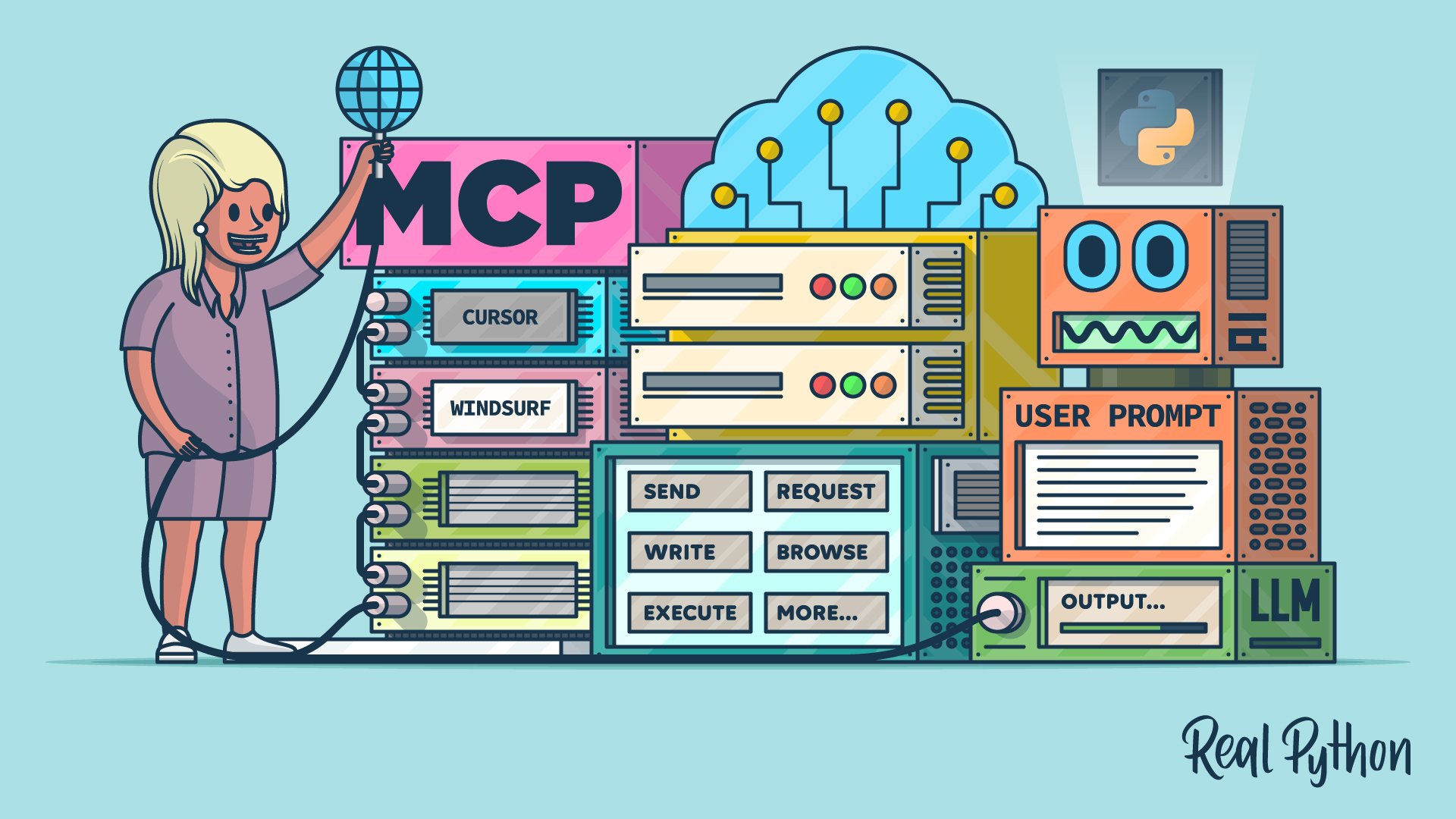
"Open a terminal or command prompt, create a new virtual environment, and then run the following command: This command will install the latest version of MCP from PyPI onto your machine. To verify that the installation was successful, start a Python REPL and import MCP: If the import runs without error, then you've successfully installed MCP. You'll also need pytest-asyncio for this tutorial: It's a pytest plugin that adds asyncio support, which you'll use to test your MCP server."
"This interaction most often involves performing actions like sending emails, writing and executing code, making API requests, browsing the web, and much more. You might be wondering how LLMs are capable of this. How can an LLM that accepts text as input and returns text as output possibly perform actions? The key to this capability lies in function calling -a process through which LLMs execute predefined functions in a programming language like Python."
Python MCP can be installed from PyPI using pip inside a virtual environment. Verifying installation involves importing MCP in a Python REPL. pytest-asyncio is required to add asyncio support for testing an MCP server. MCP defines the Model Context Protocol, which standardizes how language models interact with external systems to perform actions such as sending email, executing code, making API requests, and browsing the web. The protocol enables function calling, where models invoke predefined functions implemented in a programming language like Python. The function-calling workflow begins with a user prompt and proceeds through the model selecting and executing functions to perform the requested action.
Read at Realpython
Unable to calculate read time
Collection
[
|
...
]